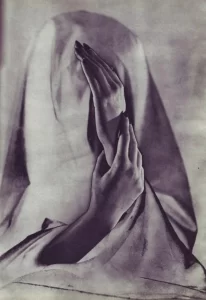
By Natasha Ramarathnam

Photography by – Man Ray
“Shame must change sides”, said 71-year-old Gisele Pelicot while defending her decision to insist on an open trial of her ex-husband, Dominique Pelicot. Why should she want the public to be kept away, she argued. It should be upto her abusers- not her- to be ashamed.
Shame!
Shame is the stick that society uses to keep women in their place, and any woman who refuses to display the appropriate amount of shame is condemned for not being womanly enough. In the Mahabharata, after Yudhishthir staked and lost Draupadi in the game of dice, she was expected to beg and plead for mercy in front of the court. Irawati Karve described this expectation perfectly in Yuganta when she wrote, “she should have cried out for decency and pity in the name of the Kshatriya code. Had she done so perhaps things would not have gone so far.” However, Draupadi refused to play by the well written rules of shame- instead of shame, she displayed indignation and anger; she quoted legal scriptures to ask whether a slave had the legal right to stake anything. Even though it was Draupadi who not only salvaged her reputation, but also ensured her husbands obtained freedom, nobody appreciated her for it. Quoting Karve again- “Nevertheless, no one had liked her pretensions to wisdom, and Dharma never forgot it for the rest of his life.” By refusing to be shamed into silence, Draupadi effectively shifted the shame from herself to the husbands who failed to protect her and to the elders in the court who chose not to. This could be the reason why most commentators of the Mahabharata judge Draupadi more harshly than she deserves- rejecting shame was an act of defiance, and society is not kind to women who are not submissive.
Shame is a very powerful weapon, but it can be used against a woman only if she agrees to be shamed. Mahasweta Devi explores this in her short story, ‘Draupadi’, where local officials rape and torture the protagonist in order to beat her into submission. Dopdi is an adivasi who was a part of the Naxalite movement, and even before she was captured she steeled her mind and body to not respond or react to the violence that she knew would be inflicted on her. When her rapists told her to get dressed so they could present her before the ‘Senanayak’, she chose to remain naked. By refusing to cover her “shame” she forced her tormentors to look away from the evidence of brutality on her body. “What’s the use of clothes?”, she challenged them. ”You can strip me, but how can you clothe me again? Are you a man?”. By forcing her tormentors to confront their own depravity, Dopdi rendered them powerless.
Shame is used to control the behaviour of women. Victims of physical, emotional and sexual violence, in particular, are often silent because of the perceived shame. By refusing to be shamed or silenced, Gisele Pelicot has almost single handedly reversed the script and put the shame back where it belongs- on the perpetrator of the crime. The courage she displays is a radical act of defiance over societal norms, and one hopes it will change it discourse around rape. As Mandakini Pachauri writes in her article in the October edition of UNDERLINED by Usawa “The graphic pictures of Pelicot’s abuse compel a reckoning with the systemic silencing of women’s trauma, particularly within French society, which has long celebrated ideals of romance, seduction, and allure, often masking deeper issues of power and exploitation.”
Natasha Ramarathnam is a dog lover, a tree hugger, a coffee addict and a book dragon. A development sector professional by training and experience, she now spends most of her time working towards gender equity and positive climate change. Her greatest achievement, according to her, has been to bring up two feminist sons.
Join our newsletter to receive updates